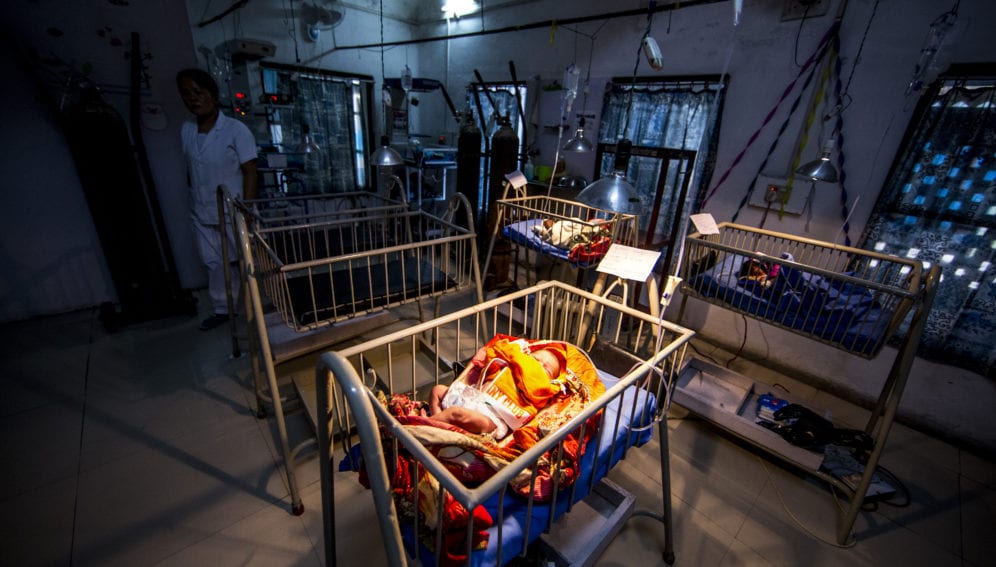By: M. Sreelata
Send to a friend
The details you provide on this page will not be used to send unsolicited email, and will not be sold to a 3rd party. See privacy policy.
[NEW DELHI] Infant deaths from sepsis (bacterial infection of the blood) can be reduced almost by half with doses of healthy gut bacteria, according to the results of a randomised trial conducted in India’s Odisha state.
Results of the study, published this month in Nature, show that when a ‘synbiotic’ combination of a probiotic strain of the gut bacterium Lactobacillus plantarum and a carbohydrate that promotes healthy bacteria was given to neo-natal infants for a week, the incidence of sepsis can be reduced. More importantly, the week-long treatment is affordable, at US$1 per baby.
Sepsis is responsible for a million infant deaths per year, most of them in the developing world, but options to prevent it are limited.
“The primary outcome was reduction in sepsis plus death.”
Pinaki Panigrahi
The study involved monitoring 4,556 infants — some placed randomly in a group that received the synbiotic and another group on a placebo — for over two months. Sepsis or death occurred in nine per cent of the placebo group and in just 5.4 per cent of the synbiotic group, showing a reduction of 40 per cent.
“The primary outcome was reduction in sepsis plus death,” says Pinaki Panigrahi, lead author and professor of epidemiology at the College of Public Health, University of Nebraska Medical Center in the United States.
According to UNICEF, 748,000 newborns die every year in India (a quarter of the global total), 33 per cent of them from infections.
“Neo-natal mortality has been reduced due to improvements in the healthcare delivery system, but deaths due to sepsis, mostly in the first week of life, have remained stagnant,” Panigrahi tells SciDev.Net.
Panigrahi says synbiotic interventions can be provided universally in South Asian countries where public health resources are limited. “While some refrigeration is currently needed [to keep the good bacteria alive as a lyophilised powder], it is nothing like the cold chain required for typical injectable vaccines. The aim is to deliver it in a timely fashion [soon after birth] and in an affordable manner.”Daniel Tancredi, associate professor at the UC Davis Department of Pediatrics, California, tells SciDev.Net that the study provides, “valuable evidence in favour of a particular synbiotic that is effective in preventing serious bacterial infections in young infants in one region. Further studies could establish what works in other locales.”
This piece was produced by SciDev.Net’s Asia & Pacific desk.














